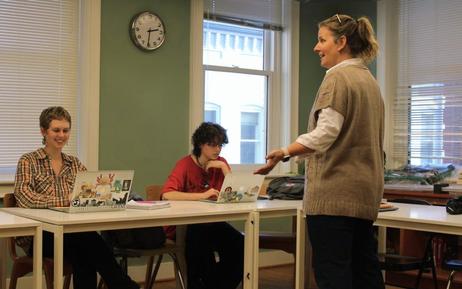Introduction
For many families weighing the cost of a private education, one of the central justifications is whether a private school can meaningfully enhance a student’s chances in college admissions. Is the premium paid solely for prestige, or does private schooling truly confer an advantage in navigating the competitive landscape of higher education? As of 2025, with intensifying competition, rising application volumes, and evolving admissions policies, this question is more pressing than ever.
In this article, we examine how and when private schooling may help with college admission, what limitations and caveats exist, and how families can make informed decisions.
What Does “Help” Mean in College Admissions?
When we say a private school helps with college admission, we refer to enhancements in:
Academic readiness – ensuring students take rigorous courses, maintain high grades, and sit for standardized tests.
Advising and support infrastructure – from college counseling to mentoring and application coaching.
Access, exposure, and networks – connections with admissions offices, alumni, internships, and extracurricular opportunities.
Signaling effect – how admissions offices perceive the reputation or selectivity of a student’s high school.
Each of these dimensions can contribute in different ways and to varying degrees, depending on the school, student, and college in question.
Evidence for Private School Advantages
Lower Counselor-to-Student Ratios & Focused Advising
A 2005 survey by NACAC (National Association for College Admission Counseling) highlighted a stark contrast: private school counselors reported caseloads around 167 students, whereas public school counselors often handled nearly 289 students. (ERIC) Because private school counselors are less overburdened, they can devote more time to postsecondary planning, essay reviews, individualized support, and follow-ups.
Moreover, the NACAC data showed that 77.2 percent of private high schools had at least one counselor dedicated solely to postsecondary admissions, versus only 20.9 percent of public high schools. (ERIC) This concentration of resources amplifies the school’s capacity to guide students through complex admissions systems.
Curriculum Rigor, Test Preparation & Outcomes
Private schools often offer a wider selection of Advanced Placement (AP), International Baccalaureate (IB), or honors courses. Students in private settings also tend to have better access to test prep and more consistent academic support. (Xceed Preparatory Academy)
That said, some research (for example, by the Fordham Institute) argues that once you control for student background and demographics, the “extra” advantage of private schooling shrinks—and in some contexts disappears. (The Thomas B. Fordham Institute) In other words, a portion of the observable advantage may stem from student selection (families able to afford private school) rather than the school itself.
Non-Academic Amenities, Networking & Legacy Effects
Private schools often host visiting college admissions officers, alumni panels, summer research or travel programs, and internships—opportunities that help students build stronger applications. Some private schools also cultivate alumni networks that can provide mentorship, letters of recommendation, or informal influence.
However, recent research underscores structural advantages tied to wealth and social capital. A 2023 study by Chetty, Deming, and Friedman found that in highly selective colleges (“Ivy-Plus”), children from the top 1 percent of incomes are more than twice as likely to be admitted as those from middle-class families with identical SAT/ACT scores. Two-thirds of that gap was explained by non-academic credentials and benefits such as legacy preferences, many of which private school students disproportionately possess. (NBER)
In effect, attending a private school may help students build the “extras”—leadership roles, global experiences, polished essays—that admissions offices may favor in a holistic review.
How Strong Is the Advantage? — A Comparative View
To clarify expectations, here is a simplified comparison between typical private school and public school scenarios:
| Dimension | Private School Potential | Public School Reality |
|---|---|---|
| Counselor Access | Low ratio, dedicated college counselors | High ratio, generalist counselors |
| Course Offerings | AP, IB, dual-enrollment options | May lack some advanced courses |
| Test Prep Resources | In-house or partner programs | Often limited or outsourced |
| Extracurricular Depth | More flexibility, leadership roles | Constrained by resources and scale |
| Alumni & Admissions Connections | Regular visits, mentorship, networking | Less consistent access |
| Student Composition | Often more affluent, prepared | More socioeconomic diversity |
This table is indicative—not all private schools deliver high quality execution, and many public schools (especially magnet or selective ones) defy general expectations.
Caveats & Limitations to the Private School Advantage
Quality Variability Across Private Schools
“Private school” is not a monolith. Some may compete only modestly in academics or lack robust resources. The degree to which a private school helps depends heavily on its size, mission, funding, leadership, and local network.
Influence of Student Background & Self-Selection
Some of the higher test scores, maturity, academic drive, and parental involvement seen in private school students reflect selection bias. Families who choose private schooling often emphasize college success, supplement learning outside class, and provide supports (e.g., tutors, summer programs). These background factors may explain a substantial share of advantage.
Diminishing Returns at the Top
At the most selective institutions, the marginal impact of school type may taper. Many elite colleges aim to balance representation, adjust for opportunity gaps, and implement policies (such as test-optional, legacy bans) that reduce the weight of school prestige in favor of individual merit.
Indeed, for Oxbridge (UK), some data suggest that, controlling for exam grades, admissions tutors may “discount” private school background because private students tend to outperform later in degree work. (Wikipedia)
Structural Shifts in Admissions Policy
Legal and cultural pressures are pushing institutions to curtail preferences tied to legacy status, donor influence, and school brand. For instance, California recently passed a law that bans non-profit colleges from considering alumni or donor connections in admissions, effective September 2025. (The Guardian) That could narrow the gap that more elite private school students currently may enjoy.
Best Practices: How a Private School Should Help Students
To justify the premium and make a real impact on college outcomes, effective private schools adopt several practices:
Begin early — Introduce college planning in freshman or sophomore years, not just in junior year.
Offer structured counseling frameworks — use programs like Naviance, multi-year “college seminars,” goal setting, progress tracking.
Maintain small caseloads — ensure counselors know each student’s profile, strengths, and application strategy.
Leverage alumni and admissions visits — bring real-world exposure, insider knowledge, and networking.
Embed test preparation & writing labs — support students with logistics, feedback, and pacing.
Foster meaningful student leadership — not tokenism, but genuine roles that align with interests.
Track outcomes transparently — track matriculations, scholarship yields, student satisfaction—so families can evaluate real returns.
When these elements align, private schooling can become a vehicle—not a guarantee—for better college access.
What Parents and Students Should Ask When Evaluating a Private School
What is the counselor-to-student ratio, and do any counselors focus exclusively on college admissions?
What is the track record (over the past 5–10 years) of alumni college matriculation?
How many AP/IB/dual-credit courses are offered, and how many students take them?
What test-prep support does the school provide (in-class, subsidized, partnering programs)?
Does the school facilitate direct interactions with college admissions officers?
What is the alumni network’s engagement—mentors, interviews, internships?
How transparent is the school about outcomes (scholarships, yield rates)?
How does the school incorporate equity and opportunity for lower-income or underrepresented students?
By asking these questions, families can separate hype from substance.
Bottom Line: A Qualified “Yes,” With Nuance
Can private school help with college admissions? The more precise answer is: Yes, but conditionally. A well-resourced, mission-driven private school that invests in rigorous academics, personalized counseling, exposure, and equity can offer a meaningful boost—especially in an increasingly crowded admissions environment.
Yet that advantage is not absolute. It depends heavily on student motivation, parental support, institutional execution, and evolving admissions policies. In some cases, a high-performing public or magnet school may rival or even exceed what a mediocre private school can deliver.
The choice to invest in private education should be grounded in evidence, realistic expectations, and a clear understanding of how that school’s offerings intersect with your child’s goals.
If you like, I can also compare specific private vs. public school outcomes in Nigeria or your region to make the article more locally relevant. Do you want me to do that?












